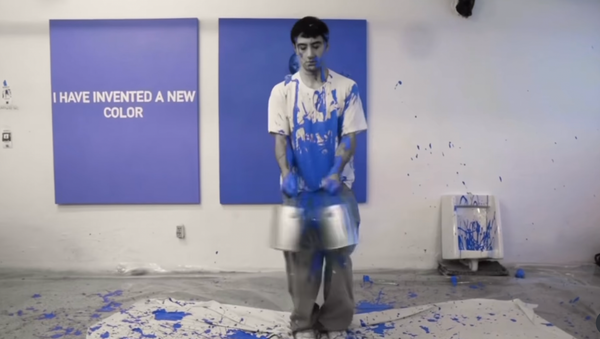When "Saturn Returns": Notes on Youth, Netflix, and the Passing Moment
Late 20s, early 30s, a time of reckoning for Gen Z.

Scene: An apartment, next to the railroad tracks. When the electric train goes by, cold air rushes through the screens of the open windows. Radiator heat blasts in the packed 4 bedroom on the South Side of Chicago's Hyde Park neighborhood. In the kitchen, a group of 21 year old boys in button-downs open a bottle of wine that the last tenants left atop of the refrigerator. Open it now, one of them says, it needs time to breathe.
On the sofa, a group of undergrads talk post grad plans: applications for master's programs, research opportunities, the job market, and relationships. One of them ran into a movie star yesterday outside of the Social Science quadrangle. Are sparks flying? Someone shouts across the living space, is that my glass of wine? No, another person responds, this is mine.
The guests line up for a spaghetti dinner cooked by the birthday girl and host, chicken herb braised and homemade tomato sauce with extra sugar, to cut the acidity, the new 22 year old recommends. Cake will come out later, and cupcakes for those who don't like chocolate, as if such a category of people exists. Some people trickle in hours late, bringing homemade chocolate chip cookies and mochi bites from Trader Joe's. How do you know each other, they ask the guests who are new to them. We met while we were abroad in Paris. These relationships cross oceans. We sing happy birthday in Ukrainian. Before she blows out her golden "22" candles and someone puts on Taylor Swift. We are Generation Z, we are the voters, the change makers, the new wave of adults, an Americanized, Westernized cultural hodgepodge of fun and extravagance with a masochistic work ethic passed down from our ersatz Protestant ancestors. We're younger than we will ever be, and more alive than ever before. Soon we will be old news.
Everyone's Saturn returns someday. Around the time when you reach the age of 27, the planet has moved so that it aligns with wherever it stood in the sky when you were born. Astrology holds that this brings radical change in a young person's life, a reckoning with their lost youth and a time of trial and confrontation that cements a person's beliefs and their adulthood. It is a bildungsroman in the true sense of the genre. The human brain stops developing around 26. 27 seems a good time for the reification of the self. I do not believe in this. It only came to my attention last Thursday while a group of girls at a birthday party spoke about a run in with a movie star on our college campus. Netflix has been busy filming here at The University of Chicago. I had not even noticed the cameramen, actors, and tech crew. I live in my own little world. When I researched the movie I assumed that it fell within the sci-fi genre. Confused as I was about the filming location in tandem with this category of film, I took the absurd for granted, which one is usually safe to do when it comes to Netflix Originals. Imagine my shock upon realizing the touchpoint of life change and coming of age between my college, while in my senior year, and this film. They were in perfect alignment, a total eclipse of the heart, if you will.
Seldom do I find such an apt synecdoche for my own life. This random film, one which I will most likely forget to watch, is a small part of my world, but which has become a metaphor for how I see my life. The description of the project shrouds itself in vague airs. The Netflix webpage writes that "Rachel Brosnahan, and Will Poulter...go through their own periods of transition, with the film spanning a decade..." but little other ink has spilt itself over the under-the-radar project. The only reason I know about it is that my old roommate stood next to Charles Melton for a few seconds. Whatever, Netflix makes content ceaselessly, so why will this film not leave my mind?
Scene: A basement coffee shop, early afternoon. From the table behind you come sounds of an online meeting with poor connection. Can you hear me now, someone asks, adjusting the miniature microphone on their apple earbuds. A steam wand screeches behind the barista bar, and the clatter of porcelain and glass interrupts an already fraught cacophony. You see a coworker out of the corner of your eye, their glasses making half moons of the overhead bulbs, the tops of their lenses shadowed by their unseasonal ballcap. The forecast warns of rain to come. The two of you wave, smile, exchange pleasantries, and you turn back to your more important work, the reason that you are here, the class assignment due Monday. No one sits across from you. You finish your lunch. At three, you have another meeting with strangers, and then it is time to buy groceries and create a bibliography for yet another recycled idea. Friday ends without climax.
What you just read was my Friday. It was not a good day by any means, but not bad by any real metric either. I cried and laughed in turn, and had plenty of activities with which to fill my time. It was the day after the birthday party, the return to normalcy after a sudden shift in reality. It was the day that my Saturn returned. Seeing my friend leave 21 behind made me realize how quickly I and the people my age will fade from the limelight of generational affluence. We will not always have the social currency with which to purchase the attention of the madding crowd. I felt myself begin to fade, begin to reckon with who I am and what I believe when there is no one to watch me do so.
This movie filming on campus might not be any good. I might not ever even watch it. But it was a Saturn in my life, it eclipsed my reality, and lined up precisely to shake my assumptions about my youth and my mortality. It reminded me that aging is a time of reckoning, and realigning yourself with the values you claim to hold, when the only eyes that are watching you are yours and God's.
The Art Newsletter
Creativity. Culture. Community.
Unlock independent analysis trusted by curious minds worldwide become a paid supporter and get access to our full content library. Every Thursday, we send a carefully curated drop of stories, tools, and creative insight for the next generation of artists, musicians, filmmakers, designers, and thinkers.
Join a global community of readers who never settle for surface-level stories.






